This learning framework breaks down the learning process into 5 steps that moves someone from renting to owning a particular skill.
The Conscious Competence Learning Matrix is useful in framing our growth as teachers and is equally beneficial in empowering educators to take charge of their own professional development.

The Conscious Competence Matrix (sometimes known as the Conscious Competence Learning Matrix) outlines the process that we all go through as we learn new skills. The process begins with us in darkness (not knowing we don't know) and ends with us pulling others out of the darkness (knowing something so well that we can teach others). In laying out this process in basic steps, it empowers us to use this tool as a means of informing and transforming™ our own teaching practices.
At this stage, you are so comfortable performing this skill that you are able to successfully teach others how to do it. This demonstrates a solid grasp in understanding as you are able to help others achieve the same. To others, you are so comfortable that you can share that comfort.
This is the stage of ownership.

In this stage, your skills are quite refined. You can do this skill successfully without having to think about it. This shows how much practice and effort you have put into this. To others, you make it look natural and effortless whenever you do it.
This is the stage of internalization.

When you are consciously skilled at something, it means that you are able to do it well though not consistently and not without effort. Being at this stage signifies that you know how to do the skill and can execute it effectively as long as you stay present. To others, it may look awkward, but it's clear to see you're getting it.
This is the stage of renting.
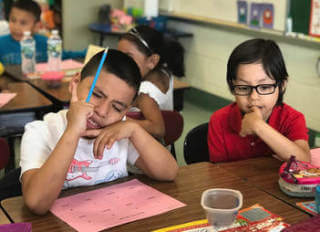
There is a time in which we know that we don't know how to do something or that we sense there is something that we lack. It is this stage that we begin to open up to change by "admitting" a need. To others, it may look like a big "ah-ha" or a bit confusing.
This is the stage of awakening.
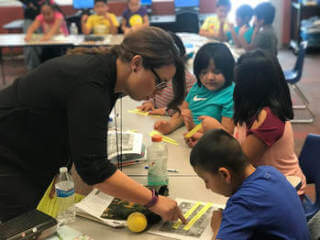
When you don't know that you don't know, who's to blame? For some reason, the experiences that you have been given have yet to inform you of the skill and its necessity. To others, it may seem bewildering that we don't see, but it's only because our eyes have yet to open.
This is the stage of blissful ignorance.
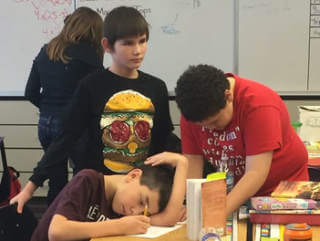
The Conscious Competence Learning Matrix is a simple and effective way to break down the process of learning into tangible stages. There are many benefits to looking at teaching and learning through this lens. The four biggest ones are:
There are many ways to incorporate the Conscious Competence Matrix into your own personal, professional growth plan or into a school/district-wide plan. The important point is to use the matrix continuously as a means of raising both your awareness and your skill set.
Take a look at how we can use this matrix as a self-reflection tool for teachers going through TESOL Trainers' SIOP Institute:
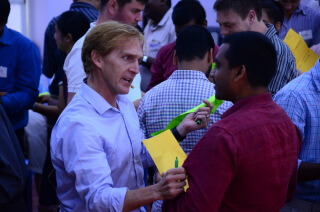
John Kongsvik and his team of trainers can design and deliver a professional development program that empowers all educators to take charge of their own professional development.
With the right knowledge, tools, and mindset, teachers develop a keen sense of awareness and the ability to use it as a means of informing and transforming™ their own teaching practices.
Let us show you how easy it is to transform teaching and learning with these awareness raising techniques.

Change is hard. Research indicates that many teachers do not understand the process of change as it relates to how to modify their own teaching skills. Not understanding the process one must go through in order successfully integrate professional development content into one's daily teaching repertoire is the reason why many teachers give up. Research also indicates that effective teacher training workshops empower their participants with an understanding of the stages of change.
TESOL Trainers helps teachers understand the process of change and navigate successfully through it. We provide real tools teachers can use to help raise their awareness levels, to develop resilience in the face of challenges, and to make purposeful changes in their practices until skill masterly is met. Change is not easy, but TESOL Trainers makes it more probable.
The Conscious Competence Matrix outlines the stages that teachers must pass through to move from unconsciously incompetent to unconsciously competent. There are certain truths about this learning model that can help everyone prepare themselves for change:
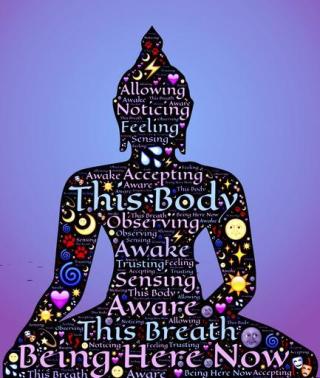
The first published record of this model comes from 1969 when Martin Broadwell published an article that attempted to qualify teachers based on their skill set. This original model had four stages:
When we say we can transform the way that teaching and learning occur at your school, we mean it. Our professional development (traditional or remote) can create a critical mass of changed teachers with a systemic and sustainable way to support change.
If you want more out of a teacher training workshop than a day away from the classroom, contact TESOL Trainers. We guarantee that every teacher will walk away from our professional development with the inspiration and instruments to change.
Become part of our TESOL network and gain access to valuable content!